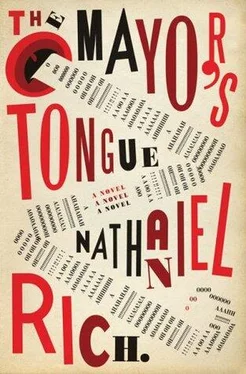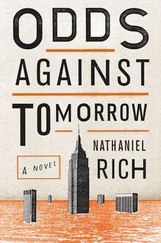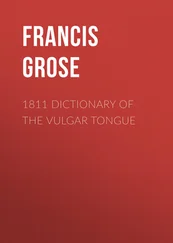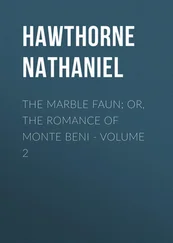"Why, if you're so afraid of the Mayor, are you going back now?" asked Agata, staring up at the moon.
"It's not about wanting to go back," said Stasia. "It's just that I have nowhere else to go. And I feel it pulling me."
Agata asked further questions, but Stasia could not explain her reasoning, and finally Agata gave up. She drifted off into an uneasy sleep, harassed by persistent thoughts of Eugene and of Eakins. The cold moisture of the soil soaked into her shirt and jeans and the two girls drew together, very gradually, until finally they were hugging, runny nose to runny nose. The Carso's nocturnal cracklings and shiftings stirred Agata every so often, and whenever it did she saw that Stasia was staring back with her restless emerald fish eyes wide open. This alarmed Agata at first, but she fell asleep feeling reassured that someone was looking out for her.
Someone else was awake nearby too. From the triangular window of the cabin, a dark form peered at the girls, its mouth breathing a small circle of moisture on the pane.
Caro Sig. Schmitz, I write you from the Castello Sforzesco in Milan, where I've just seen the sculpture collection. One of them made me think of you: a bust of a woman's head, from the seventh century b.c. Lean and narrow, with hair like a monk's and a broken nose in the shape of an attenuated triangle. Her eyes are closed — no pupils, just blankness. Melancholy captured in stone form. Her name is Teodolinda. She was a blind queen of Lombardy, the last of the Monza dynasty.
Do you remember when you tried to return to Agnes, after our European jaunt, and you found her in the kitchen with a dozen freshly picked plum tomatoes drying on paper towels? She said, "I will feel sorry to eat these."
When you asked why, she replied, "Because they have scars."
And you noticed that they all had minuscule scars and stitch marks, here and there. You told her that it was normal, that all tomatoes have blemishes and that she wouldn't get sick. To demonstrate you took a bite out of one of them. But as your teeth broke through the tomato skin, pricks of tears appeared in the corner of her eyes. And you realized — I remember you telling me this vividly, we were playing chess with Augie at the park — you realized that she did not mean to say that she was worried about food poisoning. No, she was simply sad for the tomatoes. She sympathized with them. She felt guilty at the prospect of eating the ripe little things.
How we laughed at her! But I apologize now. Sitting here outside the ancient castle I'm seeing more clearly my deficiencies as a friend to you. I hope you don't mind a string of apologies, delivered in letter form, or perhaps by postcard.
It is fine to be back after so many years. I'm looking forward to finding my favorite old trattorie and exploring the outdoor food fairs. Most of all, however, I'm looking forward to mastering Italian. I realized that I've barely spoken a lick ever since Carlita's death. But now I'm immersed in it, so we'llsee where that gets me. My restaurant Italian is already back in form. Watch: "Il conto, per favore!"
abbracci,
Rutherford
In a rising, incautious voice, Eugene asked Frank Lang why he hadn't bothered to look for Sonia after her disappearance. Lang's answers were alternately defensive, fearful, indifferent, childish, guilty, ponderous, and befuddled. He had tried asking around at her favorite bars and cafés, he said, but no one remembered seeing her. Eugene asked him which bars and cafés. Lang stuttered and wheezed. He insisted that he really had tried. Then he added that he didn't have many friends and found it difficult to talk with strangers. Besides, he asked Eugene, why should her disappearance be his concern? She was no longer a child. She could make decisions for herself. Lang then sat mute while Eugene repeated the same questions to him over and over.
"How could you let her run away? When did you notice she was gone? Where could she have traveled in the middle of the night?" Eugene suffered none of the inhibitions he felt around Abe, and Lang's timidity was wearing on him. The anger felt good — clear, strong, as if he was in control.
"She's in better hands than mine," said Lang at last, glancing at his own knobby, maculated claws. "Who are you to question me in this manner, anyway?" he shouted suddenly. He looked at Eugene directly for the first time, with a fierce, empurpled glare. Eugene held the stare, and Lang lowered his head again, muttering to himself.
"What's that?" asked Eugene.
"I'm afraid to go back up there," said Lang loudly, in a skirling falsetto voice. "It's been so long. Ten years."
"From the way you've described it, I'm not sure she really wanted to go up there anyway. She clearly wanted something, but I don't think Connie is it."
"And you are?"
"I don't know. But she's in danger, and I have to find her. I need to find her. You've got to take me up there, to the Carso. It doesn't sound like there are any maps that show all the tiny towns up there."
But Lang would not leave his desk. He shook his head and gestured like a blind man, terrified and uncertain. There was something internally violent about his refusal, as if his human interests and sympathies had been pitted against a more profound, constitutional code. He seemed a much older man on this side of the conversation.
Eugene wondered what Jacinto would do, in his position. Would he go home, back to New York? Of course not — Alsa's honor would be worth any effort, any adventure, and with that, Eugene ventured out of the bookstore alone, in search of Sonia's few friends in the city. He began at the meat market on Piazza Ponterosso, where Lang had said he could find her friend Kasia.
At this early hour the square was busy with handsome women in high starched collars and dark woolen jackets too hot for the weather. Many held wooden baskets piled up with raw meat and swarmed by insects. They wandered between carts painted the colors of their nation of origin, offering samples of sausage and cheese with cups of mustard for tasting. Walking among these carts was like taking an olfactory tour of Mitteleuropa, where smells of saure Blunzen, Quargel, and Verhackerts mingled with prosciutto, pancetta, and speck, all trafficked with hairsweat and the pigeon musk rising from the brackish Canal Grande. Around the perimeter of the market, a gang of stray cats circled with calculating eyes and scabbed flanks.
After much confused pointing and shrugging by a Hungarian butcher, Eugene spotted Kasia. Her resemblance to Sonia stunned him. Although she was dark-eyed and black-haired, she had the same lissome movements, the same dallying, sultry pose.
"I have a freshly stuffed sheep's belly," she said.
Eugene rubbed his ear.
"Also lean pork sausage from a farm in Colludruzza. What are you looking for?"
"I'm looking for a girl named Sonia. I think you know her."
Kasia laughed softly to herself, covering her mouth.
"Ah, Sonja, you say? I recognize you from her description. You work for her father. Eugenio, the Italian Jew from New York."
Kasia hadn't heard anything about Sonia in a month, and was concerned when Eugene told her that Sonia was missing. But when he said that Sonia had run off with Eakins, Kasia removed her hand from her mouth and laughed loudly in his face.
"We always said that Signor Eakins was the ideal boyfriend," she said. "He brought her to Italy on an expense-paid trip, encouraged her to explore the city and the countryside and consort with other boys. And she didn't have to sleep with him — or even see him for that mat ter. You know," she said, cutting off her laughter and taking a serious, confiding tone, "he's been dead for very many years. He was a great writer but not since before we were born."
Читать дальше












